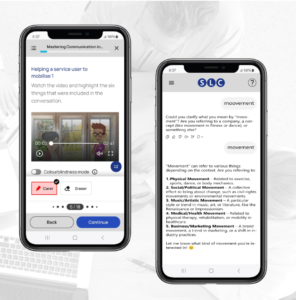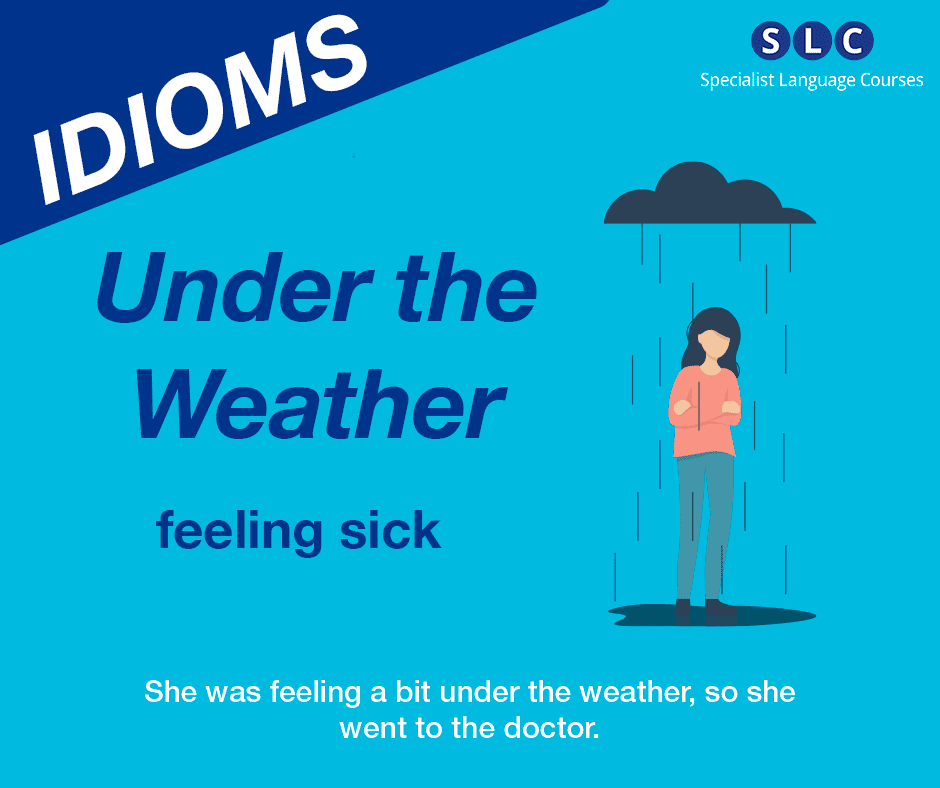
SLC win Ufi grant to develop AI language learning app for social carers
We’re delighted to have won a grant from Ufi VocTech Trust to develop an AI-driven technology solution that provides cheap phone-based language and communication skills

Are you feeling under the weather? In this post, Stephanie Lam gives you insight into how the British both under- and overstate what they feel by using idioms rather than plain language. An essential tip when dealing with British patients!
How are you this morning, Mrs Fisher?
A bit under the weather, I’m afraid.
‘Feeling under the weather,’ is a British idiom that’s usually translated as ‘feeling slightly ill’, or ‘not completely well.’ However, that’s not the whole story and to dive into it, we need to look at how we, the Brits, tend to express ourselves when – to use another idiom – the chips are down.
Reading the conversation above, you might think that Mrs Fisher may have a bit of a cold, or she’s struggling a little with something. She might tell you she has a pain in her right hand side, or that she’s having more difficulty breathing than normal. Still, you think, it isn’t troubling her too much.
That’s where you might be mistaken.
There’s something strange in the British psyche, which means we overdramatise the minor difficulties of our lives, and play down the really important things. The phrase ‘under the weather’ is a perfect example of how this translates into our everyday interactions.
A British person who is having significant health difficulties may well tell you they’re a bit under the weather. Conversely, someone who says, ‘the traffic was horrendous today!’ was probably only delayed by a few minutes.
It’s not something that’s done with full awareness. Mrs Fisher might even have an unconscious expectation that when she tells you she’s a bit under the weather, you’ll understand that she’s having significant difficulties. Then, like a detective with a suspect, you’ll wheedle out the truth.
Clearly, a great deal of time could be saved if Mrs Fisher told you in plain language how she was feeling, rather than relying on an idiom. Yet this is true language – alive and imperfectly used, and the more we understand of it, the better our communications will be.


Stephanie Lam is a writer, journalist, and English teacher. She specialises in writing fabulous words for the wellbeing and health industries.
SLC was the OET-accredited Premium Preparation Provider in Europe and is the leading provider of OET preparation services to the UK National Health Service.
SLC offers a wide range of OET preparation services, including self-study, tutoring, practice tests, and writing correction.
Specialist Language Courses (SLC) are experts in Medical English, IELTS and OET preparation. We work with thousands of candidates every year and specialise in working with healthcare professionals. Clients include many NHS Trusts and private healthcare groups in the UK.
Call or email SLC to talk about your Medical English, OET and IELTS options.
Get updates and get the latest materials on Medical English, OET and IELTS

We’re delighted to have won a grant from Ufi VocTech Trust to develop an AI-driven technology solution that provides cheap phone-based language and communication skills

We’re delighted to announce a partnership with leading Medical English app, Doxa.
